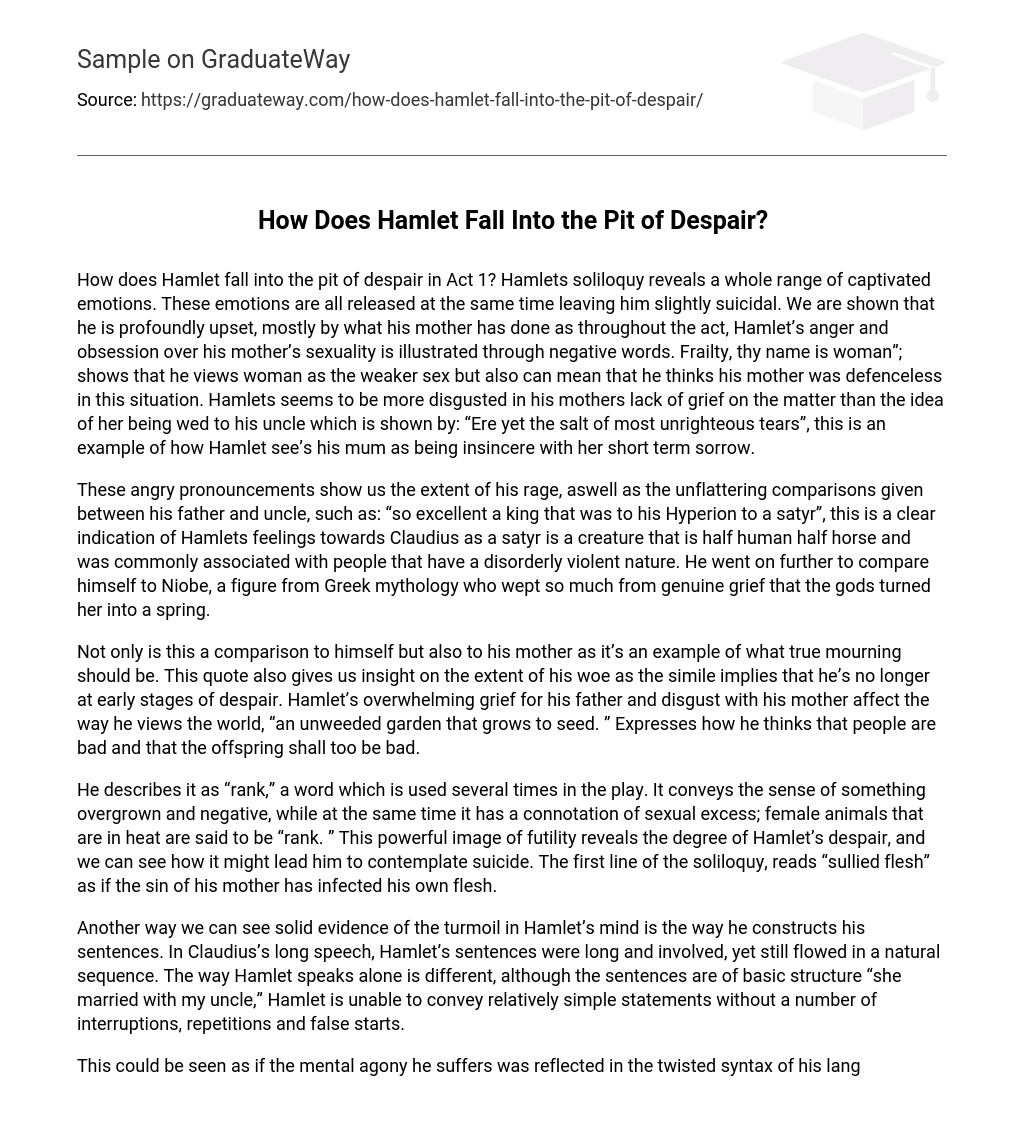How does Hamlet fall into the pit of despair in Act 1? Hamlets soliloquy reveals a whole range of captivated emotions. These emotions are all released at the same time leaving him slightly suicidal. We are shown that he is profoundly upset, mostly by what his mother has done as throughout the act, Hamlet’s anger and obsession over his mother’s sexuality is illustrated through negative words. Frailty, thy name is woman”; shows that he views woman as the weaker sex but also can mean that he thinks his mother was defenceless in this situation. Hamlets seems to be more disgusted in his mothers lack of grief on the matter than the idea of her being wed to his uncle which is shown by: “Ere yet the salt of most unrighteous tears”, this is an example of how Hamlet see’s his mum as being insincere with her short term sorrow.
These angry pronouncements show us the extent of his rage, aswell as the unflattering comparisons given between his father and uncle, such as: “so excellent a king that was to his Hyperion to a satyr”, this is a clear indication of Hamlets feelings towards Claudius as a satyr is a creature that is half human half horse and was commonly associated with people that have a disorderly violent nature. He went on further to compare himself to Niobe, a figure from Greek mythology who wept so much from genuine grief that the gods turned her into a spring.
Not only is this a comparison to himself but also to his mother as it’s an example of what true mourning should be. This quote also gives us insight on the extent of his woe as the simile implies that he’s no longer at early stages of despair. Hamlet’s overwhelming grief for his father and disgust with his mother affect the way he views the world, “an unweeded garden that grows to seed. ” Expresses how he thinks that people are bad and that the offspring shall too be bad.
He describes it as “rank,” a word which is used several times in the play. It conveys the sense of something overgrown and negative, while at the same time it has a connotation of sexual excess; female animals that are in heat are said to be “rank. ” This powerful image of futility reveals the degree of Hamlet’s despair, and we can see how it might lead him to contemplate suicide. The first line of the soliloquy, reads “sullied flesh” as if the sin of his mother has infected his own flesh.
Another way we can see solid evidence of the turmoil in Hamlet’s mind is the way he constructs his sentences. In Claudius’s long speech, Hamlet’s sentences were long and involved, yet still flowed in a natural sequence. The way Hamlet speaks alone is different, although the sentences are of basic structure “she married with my uncle,” Hamlet is unable to convey relatively simple statements without a number of interruptions, repetitions and false starts.
This could be seen as if the mental agony he suffers was reflected in the twisted syntax of his language. Finally the last line of the soliloquy reveals Hamlet’s sense of isolation. He has no one who he can share his sense of frustration with because his uncle dominates the court at Elsinore. “But break, my heart; for I must hold my tongue”, this makes Hamlet feel like he cannot turn to or trust anyone. By Joanne Hayati (





